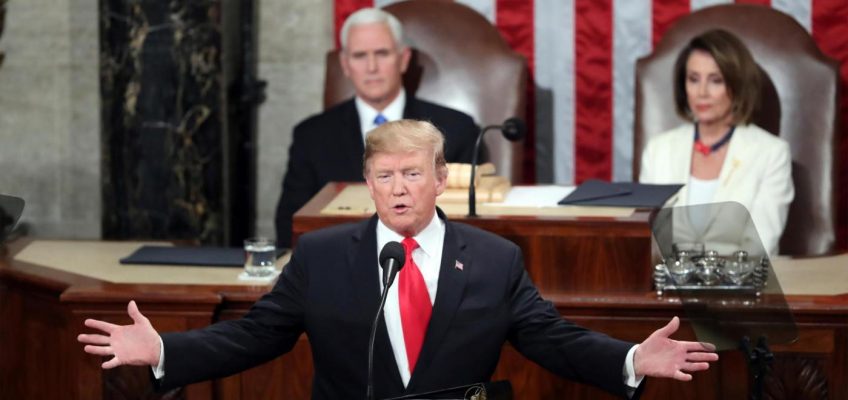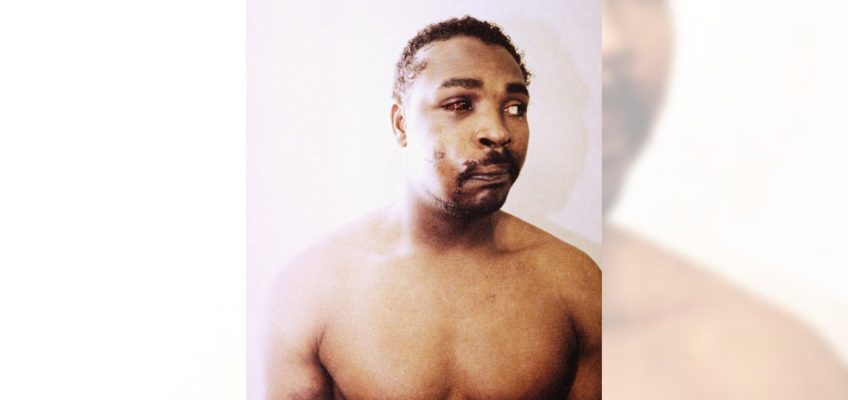In February, we featured eights dogs and 17 cats in the Morning Report.
It’s a great way to start the day.
“We look forward to seeing the pets every day,” one subscriber wrote. “What a day brightening service you provide for all of us animal lovers!”
To subscribe to our free newsletter, follow the prompts at twincities.com/newsletters. Also, check out more photos in our January slideshow.
Friday, Feb. 28
Pumpkin of New Zealand.
“This is Pumpkin, the resident cat of Hobbiton in Matamata, New Zealand,” Lynne wrote in January. “She accompanied us on our entire tour of the Hobbit village. It’s warm down there now!”
Congrats, Pumpkin, you are the first New Zealand cat featured in the Morning Report!
Thursday, Feb. 27
Pumpkin
Last month, we featured Kathy’s foster cat, Doodles, napping on a heating register. This month, meet her cat, Pumpkin.
“She is a beautiful tortoiseshell Calico,” Kathy writes. “She is 13 to 14 years old. She is one of four cats in the household. She was rescued as a kitten, found abandoned on the East Side. She puts up with the other cats in the household but she really doesn’t like being around them. She loves it when new people come to the door and pet her and she loves laying on our feet on top of her Minnesota Vikings blanket. Sorry, Pumpkin, the Vikings weren’t in the Super Bowl again this year.”
Wednesday, Feb. 26
Max, waiting for spring.
“Max is still sitting by the fire,” Linda writes. “I know he’s looking out the window waiting for spring.”
Same here, Max!
Tuesday, Feb. 25
Herman and Bandit
“My aunt rescues all sorts of animals, all with unique stories,” Jack writes. “I adopted my two cats, Herman and Bandit, thanks to her!
“Herman (orange and white) was owned by an elderly man who passed away with nobody who would adopt him. Bandit (gray and white) was born completely blind and lived in a shelter for the first few years of her life in a small kennel. She was set to be euthanized due to not having space, and nobody to adopt her. My aunt stepped up for both and gave them a large kennel where they could adjust to their new homes together. They became a bonded pair and when I called her saying I wanted to foster a cat, she said ‘How about two? I have this bonded pair…’ They’ve lived with me ever since.
“Bandit hid under the bed for those first weeks before she got comfortable. Herman acts like a dog and wants to be petted constantly. Almost 10 years later and they will still lie with each other, happy to be around!”
Monday, Feb. 24
Robin
“This is Robin,” writes Kristin of St. Paul. “She is six and from the Humane Society. She got her name from the Robin Hood fox from the 1970s cartoon since she likes to steal things (if they are dropped on the ground.) She always does a little ‘I’m guilty’ dance and you have a few moments to rescue the item before you hear a crunch. She now looks like any 70s’ TV/movie dog: scruffy with undetermined parentage. She loves treats and running through her doggy door to join the community canine chorus.”
Friday, Feb. 21
Sasha
“It might be cold outside, but eight-year-old Sasha is thinking spring while enjoying the sun beside the orchids,” Cindy writes. “I always enjoy the pet photos and stories. They brighten the day.”
Thursday, Feb. 20
Bernie Birman
“Bernie Birman was not much help with the jigsaw puzzle,” Kiki writes. “He squirreled away two pieces of the 1000 piece puzzle.”
Wednesday, Feb. 19
Izzy helps out with the recycling.
“This is Izzabelle aka ‘Izzy,’ our 13-year-old Goldendoodle,” write Brett and Mary. “During the pandemic lockdown, out of boredom, we taught her to carry plastic bags and small flattened boxes out to the garage for recycling. Ever since, whenever we return home from doing errands, she jumps out of the car and dashes into the kitchen to help us unpack and recycle. When she’s finished, she collects her ‘paycheck,’ in the form of a doggie biscuit.”
Tuesday, Feb. 18
Clover
“This is my sister’s teenage cat, Clover,” Diane writes. “He is very good at being cute and then taking a nap … He likes to sleep in chairs, even when they are not quite wide enough or when he must sleep around a corner.
Clover
Unfortunately, neither of these photos show his spectacular tail.”
Monday, Feb. 17 (Memorial Monday)
Pepper
“Pepper, or Pepper Doodle as I liked to call her, passed a few years ago,” Wendy writes. “She was not my cat, but I was unofficially her godmother. Pepper lived with a friend of mine. They both used to winter in Arizona. When my friend travelled without Pepper, I took care of her feeding, litter, and keeping her company. That increased our bond. Hardly a day goes by that she does not show up in my photo history.”
Friday, Feb. 14
Leila and friends.
“Leila loves to count sheep,” Angie reports. “It is more likely that she is part Border Collie, and she can’t resist the urge to herd her flock.
“Leila’s attachment to her lamb chop is heartwarming. She keeps it close, even using it as a pillow during a mid-afternoon nap.
Leila and Lamb Chop.
“Winter is here, along with dry air and static energy! But Leila seems to be enjoying it, having a great hair day.”
Leila’s winter hair.
Happy Valentine’s Day, Leila and friends!
Thursday, Feb. 13
Kiki supervises.
“My husband and I took over care for Kiki from my daughter several years ago,” Julie writes. “He loves to guide my baking, do laundry and assist in minor repairs. He helps around the house so much we wonder how we ever got anything done without him! I’m a teacher and he does a lot of reading and research for my classes. He earns a regular paycheck plus lots of love, attention and treats.”
Wednesday, Feb. 12
Dolly Parton
“Here are my grand kitties,” Grandma Deb writes. “Dolly Parton is a Tabby and Remus is a short-haired Exotic.
Remus
“My daughter is a veterinarian; Dolly was surrendered to the clinic after she had been hit by a car. She was a very healthy 1-year-old but had a severely broken rear leg from the accident. My daughter decided to amputate the leg with the intention of finding her a loving family once she had regained strength. She brought her home while she was recovering from the surgery, there she stole everyone’s heart! Dolly now lives very happily with Remus and three canine brothers.
“Don’t you just love happy endings?”
Tuesday, Feb. 11
Blue
“Hello,” writes John of Hudson, Wis. “I wanted to share the adventure of our kitty Blue, who came to us three years ago. We live in a rural location in western Wisconsin and noticed a dark gray cat in our yard in April of 2022, interacting with our other cat. He disappeared into the woods and we did not see him again for a month when he came and went once more, then a few months later in August, while we were out in the yard, he appeared again, walked right up to us and basically declared that he had picked us and he has been with us ever since. We think he was dropped off by someone and left to fend for himself. We are blessed to have him!”
Monday, Feb. 10
Good morning, Muchi!
“Good Morning,” the Sarpal family writes. “This is our beautiful cat, Muchi! Muchi turned 12 on Dec. 6 and is still a kitten at heart. Her favorite things to do are snuggle, take naps by the fireplace and play a game of chase with her sister, Poppy.”
Happy Belated Birthday, Muchi!
Friday, Feb. 7
Tony and Max, BFFs.
“Tony and Max, a couple of Morkies, have been BFFs since they got together as pups nearly four years ago,” Jerry writes. “They do everything together.
“Tony’s fully recovered now after major surgery in October from liver problems that were corrected thanks to having an ameroid constrictor placed on a shunt. Amazing what the doctors were able to do with such a small little guy and how resilient he’s been. And how sensitive Max was towards him during his recovery. They’re inseparable.
“They’re the joy of my life!”
Thursday, Feb. 6
Miss Biscuits on a walk.
“This is a picture of my boyfriend and then-new-to-us Corgi, Miss Biscuits, on one of our first walks with her, ” Barbara writes. “We had just come all the way up one of the looong stairways from Minnehaha Falls, and a man who saw them come up out of the stairway stopped and said, ‘I think that’s the most beautiful dog I’ve ever seen.’
“We were a little surprised to hear this kind of comment from a complete stranger, but over time we have to say, we kind of agree! Biscuits is beautiful — but she doesn’t know she’s beautiful. She’s intelligent, compassionate and just a wonderful person.”
(Miss Biscuits is a dog, of course, but we understand the sentiment!)
“She wants you to know how smart she is and to do a good job, ” Barbara writes. “And if anyone is ever in distress (including our three cats) she is right there trying to help. She works as a therapy dog and loves to train for rally obedience or any other activity we ask. We could not be more lucky than to be the family she chose.
“Some people say because she is a Corgi that she is the ‘Queen’s dog,’ we say that she is simply ‘The Queen.’ A big thank you to the breeders, Shooting Star Farm Corgis, for entrusting us with this precious girl.”
Wednesday, Feb. 5
A critter runs from Maddie.
“I’m a brand-new subscriber and have enjoyed Daily Doggo/Meow very much,” Nancy writes. “My 17-year-old cat, Maddie, is very skilled at catching/eating rodents. Her favorites are chipmunks and voles; this was taken last August. She prefers naps now that cold weather has set in.”
Tuesday, Feb. 4
Jolly Arthur
“This is Jolly Arthur, our Newfie who loves Christmas and all other times of the year,” Greg writes.
Monday, Feb. 3
Herky, Taz and Remi
“This is of my nephew dog, Herky (yellow Lab), who just passed the Rainbow Bridge and our black Lab, Taz, who passed four years ago and our Dalmatian, Remi, back in Dec. 2020,” Jen writes.
“Herky loved chewing on anything and everything. I believe his favorite thing to do was to try and catch minnows on Leech Lake during the summer.
Bella and Herky.
“Here is Herky with Bella, the dog of my niece and her fiancé. They loved playing together.”
House cats with bird flu could pose a risk to public health
Future unclear for animals at embattled Roseville aquarium chain after January sale thwarted
A cat called Luna Pontoon, and other pets we featured in our January newsletter
After bankruptcy filing, embattled Roseville aquarium chain to potentially sell for $80K
Meet the canine king and queen of the 2025 St. Paul Winter Carnival and Doggie Depot




